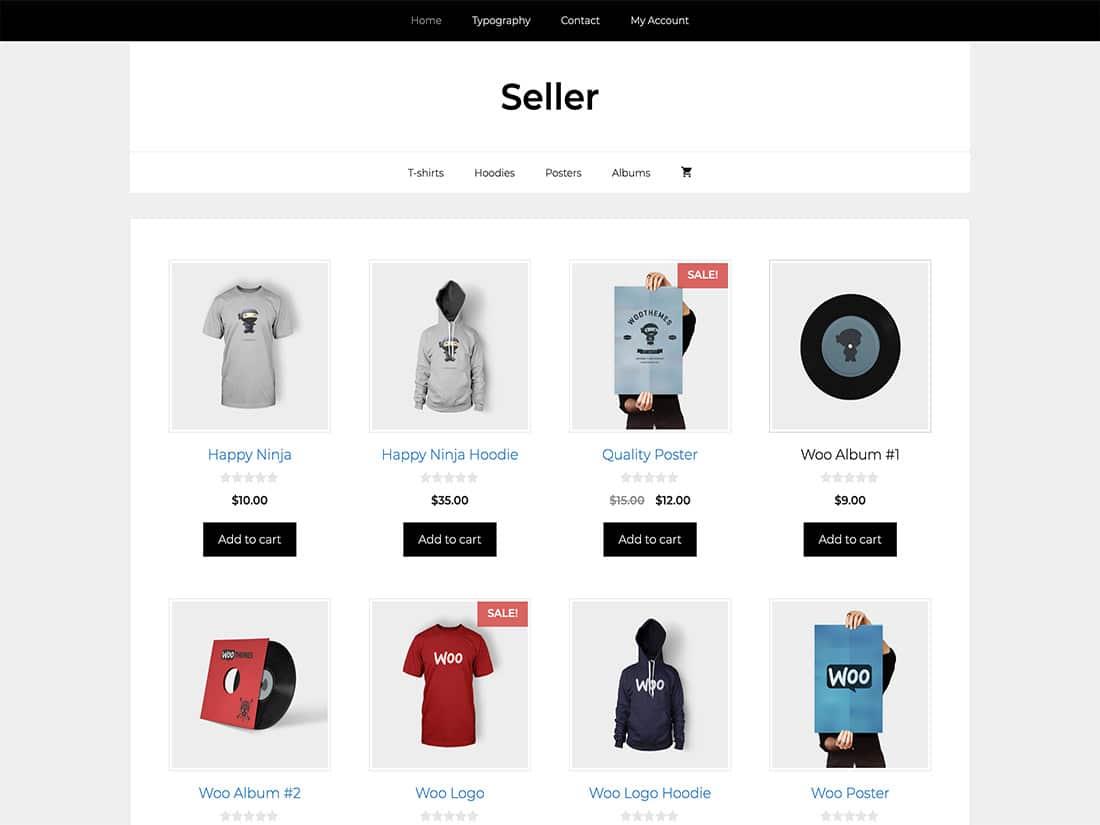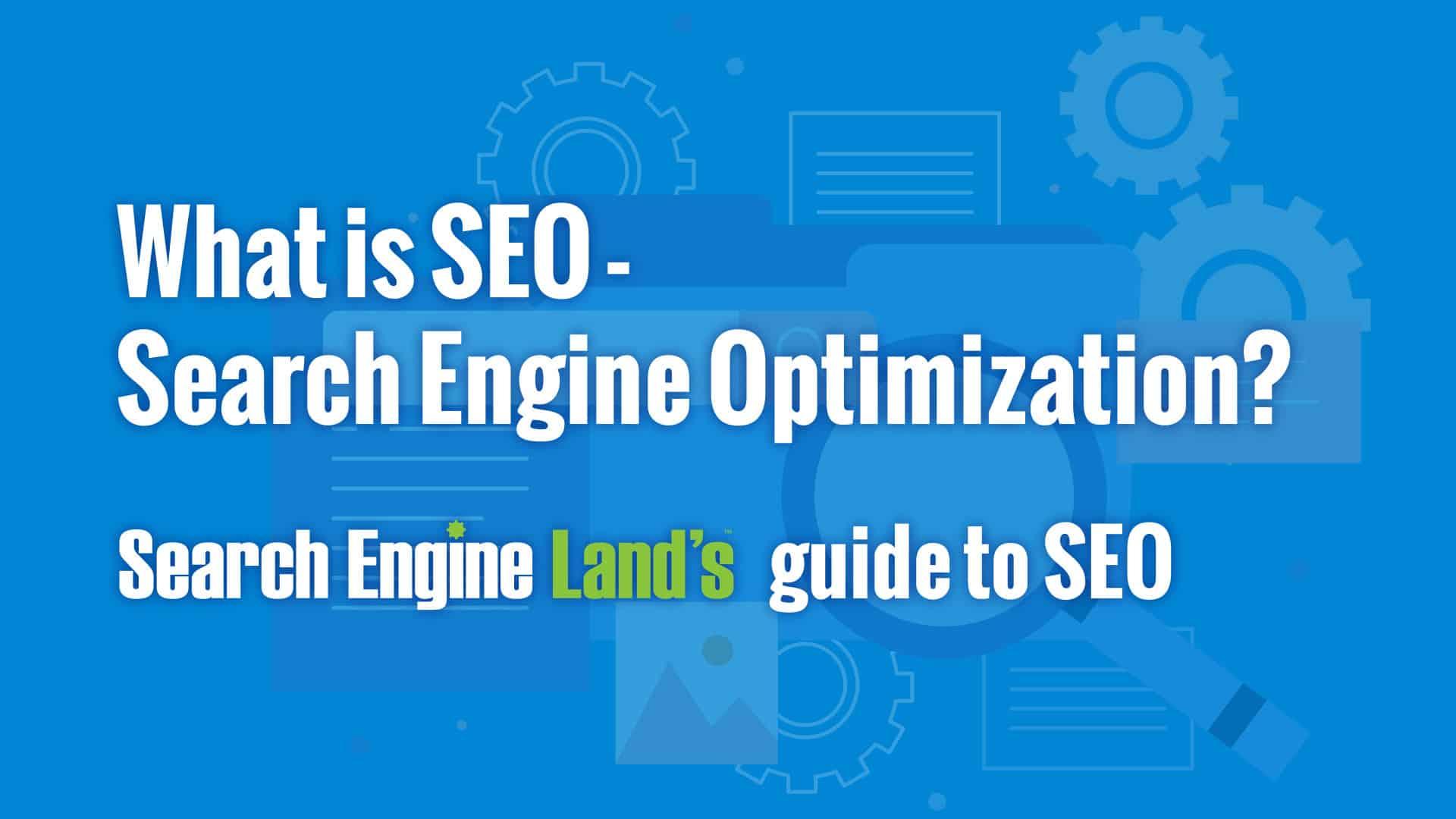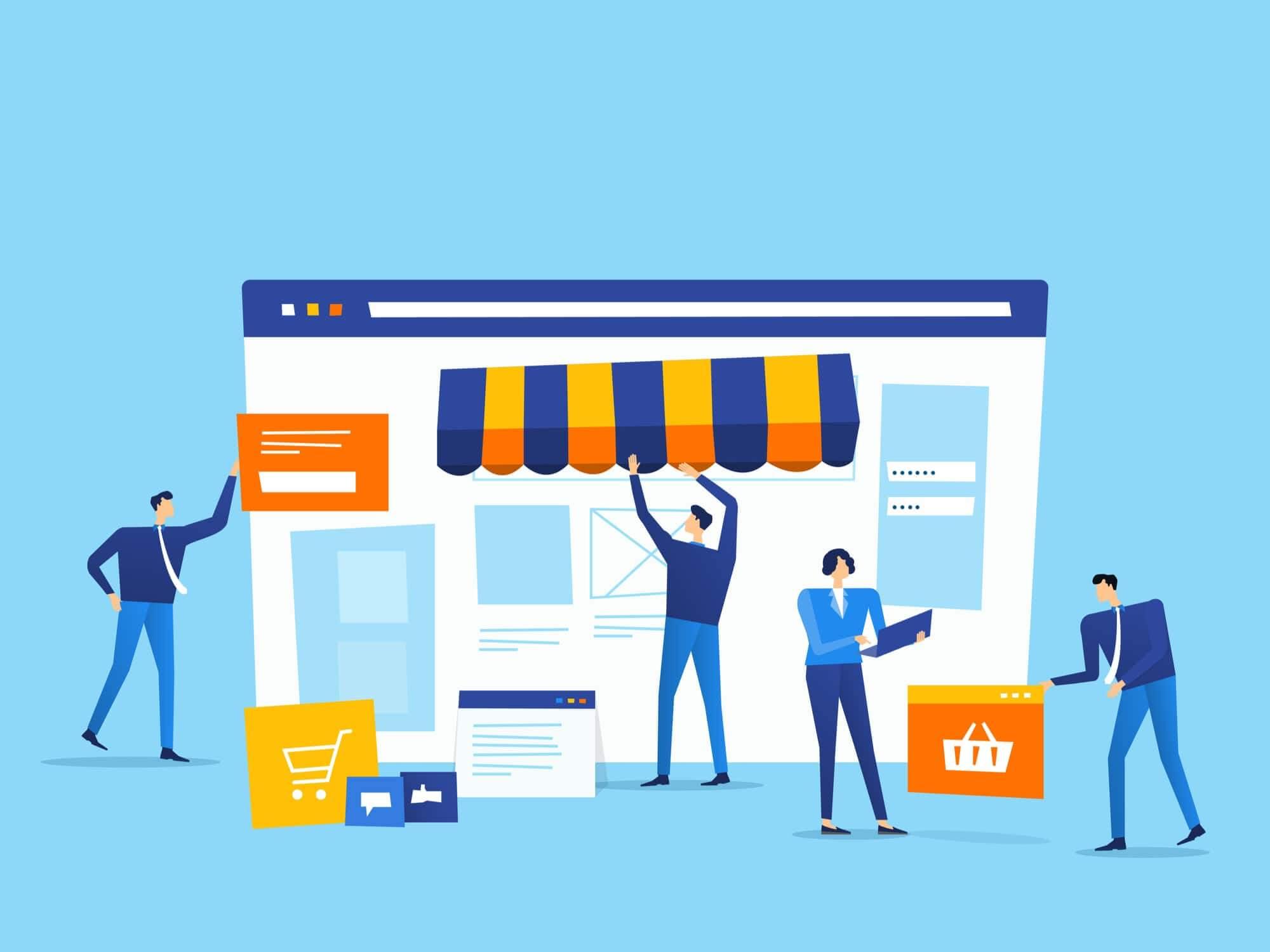Ready to turn your passion into profit? Starting an online store with WordPress is easier than you think! With user-friendly tools and customizable themes, you’ll be selling in no time. Let’s dive into the ultimate guide and make your dream a reality!
How to Start an Online Store With WordPress: Ultimate Guide
Are you ready to turn your entrepreneurial dreams into reality? If you’ve ever thought about starting your own online store, you’re in the right place! With the rise of e-commerce, setting up an online business has never been more accessible, and WordPress is one of the best platforms to help you launch your store with ease. In this ultimate guide, we’ll walk you through every step of the process—from choosing the perfect domain name and setting up your hosting to customizing your store and attracting customers. Whether you’re a seasoned techie or a complete newbie, we’ll break it down into manageable bites, so you can confidently build a stunning online shop that stands out from the crowd. So, grab a cup of coffee, roll up your sleeves, and let’s dive into the exciting world of online retail with WordPress!
Choosing the Right Hosting Provider for Your WordPress Store
When it comes to launching an online store with WordPress, one of the most critical decisions you’ll make is selecting the right hosting provider. The ideal host can significantly affect your site’s performance, security, and scalability, which are essential for a successful e-commerce venture. With numerous options available, here are some key factors to consider in your search for the perfect hosting partner.
Performance and Speed
Your website’s load time can make or break your customer’s shopping experience. A host that offers solid performance and fast loading times can decrease bounce rates and improve customer satisfaction. Look for providers that offer:
- SSD storage for faster data access
- Content Delivery Network (CDN) integration to speed up site delivery
- High uptime guarantees— aim for 99.9% or higher
Security Features
Security is paramount for any online store. Customers need to trust that their data is safe. Choose a host that provides robust security measures, such as:
- SSL certificates to encrypt data
- Regular backups to protect against data loss
- Firewalls and malware scanning to fend off attacks
Scalability Options
As your business grows, your hosting needs may change. Opt for a provider that allows you to scale your resources without hassle. This means looking for:
- Flexible plans that accommodate increased traffic
- Easy upgrades from shared to VPS or dedicated hosting
- Support for plugins and tools that enhance scalability
Customer Support
When running an online store, you need reliable support at your fingertips. Look for hosting providers that offer:
- 24/7 customer support via multiple channels (chat, phone, email)
- Knowledgeable staff familiar with WordPress and e-commerce
- Comprehensive documentation and tutorials
| Hosting Provider | Performance | Security | Customer Support |
|---|---|---|---|
| Bluehost | Excellent | Free SSL, daily backups | 24/7 phone & chat |
| SiteGround | Very Good | Managed security updates | 24/7 chat support |
| WP Engine | Outstanding | High-level security protocols | 24/7 expert support |
Ultimately, the right hosting provider is one that aligns with your specific business needs and goals. Take the time to research and compare various options, focusing on their offerings, support, and scalability. Choosing wisely will pave the way for a successful online store that not only meets but exceeds your customers’ expectations.

Selecting the Perfect E-commerce Theme to Captivate Your Customers
Choosing the right e-commerce theme is crucial for creating an online store that not only looks good but also provides a seamless shopping experience for your customers. With countless options available, it’s essential to identify key features that resonate with your brand and audience. Here are some factors to consider:
- Responsiveness: Make sure your theme is mobile-friendly. A significant portion of online shopping occurs on mobile devices, so your store must look and function flawlessly across all screen sizes.
- Customization Options: Look for themes that offer flexibility in design. The ability to tweak colors, fonts, and layouts without knowing how to code can help your store stand out.
- User Experience (UX): Prioritize themes that are designed for easy navigation. A clean layout with intuitive menus can significantly reduce bounce rates and improve conversion rates.
- Integration Capabilities: Ensure your chosen theme is compatible with popular plugins, payment gateways, and other essential tools. This will help streamline your operations and enhance customer satisfaction.
Another crucial aspect to look for is SEO optimization. A well-structured theme can improve your site’s visibility on search engines, driving more organic traffic to your store. Look for themes that come with built-in SEO features or are compatible with SEO plugins. Here’s a quick comparison of some popular e-commerce themes:
| Theme Name | Responsiveness | Customization | SEO Friendly |
|---|---|---|---|
| Astra | ✔️ | ✔️ | ✔️ |
| OceanWP | ✔️ | ✔️ | ✔️ |
| Shopkeeper | ✔️ | ✔️ | ✔️ |
| Flatsome | ✔️ | ✔️ | ✔️ |
Lastly, don’t overlook the importance of customer support. A reliable theme developer will offer timely updates and assistance, ensuring that your store remains functional and secure. Read reviews and check the support forums to gauge user experiences. Investing time in selecting the right theme not only elevates your brand but also significantly influences your customers’ shopping journey.
Remember, your e-commerce theme is more than just a design template; it’s the foundation of your online store. By being mindful of these elements, you can create an inviting, effective storefront that captivates customers and drives sales.
Essential Plugins to Boost Your Online Store’s Functionality
When launching an online store with WordPress, choosing the right plugins is crucial to enhancing your site’s functionality and providing an exceptional user experience. These essential plugins will not only streamline your operations but also help convert visitors into loyal customers.
1. WooCommerce
This powerhouse plugin is indispensable for any online store. WooCommerce transforms your WordPress site into a fully functional e-commerce platform. It comes with features like:
- Product management
- Secure payment gateways
- Inventory tracking
- Shipping options
With WooCommerce, you can customize your store to fit your unique brand needs while catering to a diverse range of products.
2. Yoast SEO
Getting noticed in the crowded online marketplace requires solid Search Engine Optimization (SEO). Yoast SEO helps you optimize your store’s content for search engines. With features like:
- Keyword optimization
- Readability analysis
- XML sitemaps
This plugin ensures that your products rank higher in search results, driving more organic traffic to your store.
3. Elementor
First impressions matter, and Elementor allows you to create stunning, customizable page layouts without needing any coding skills. With its drag-and-drop functionality, you can design:
- Product pages
- Landing pages
- Checkout pages
Your online store’s aesthetics will attract customers and keep them engaged longer, ultimately boosting conversion rates.
| Plugin | Key Feature | Why You Need It |
|---|---|---|
| WooCommerce | Fully integrated e-commerce solution | Transforms your site into a store |
| Yoast SEO | SEO optimization tools | Improves search engine visibility |
| Elementor | Drag-and-drop page builder | Creates beautiful, unique layouts |
4. WPForms
Communication is key to building customer relationships. WPForms allows you to create intuitive contact forms, surveys, and payment forms effortlessly. With features like:
- Pre-built templates
- Spam protection
- Multi-page forms
You can make it easy for customers to reach you, enhancing their overall shopping experience.
5. MonsterInsights
Understanding your audience is essential for growth. MonsterInsights integrates Google Analytics directly into your WordPress dashboard, providing insights on:
- Visitor behavior
- Conversion rates
- Traffic sources
With this data, you can make informed decisions to drive traffic and sales, optimizing your store’s performance.

Crafting a User-Friendly Navigation for a Seamless Shopping Experience
When it comes to online shopping, navigation can make or break a customer’s experience. A well-crafted navigation system allows shoppers to find what they’re looking for without frustration, leading to higher conversion rates. To achieve an effective navigation structure, start by understanding your audience’s needs and organizing your products accordingly.
Begin by categorizing your products into logical groups. This might include:
- Product Type
- Brand
- Price Range
- Trending Items
By grouping similar items together, you create a pathway for customers to explore your offerings without feeling lost. This structure not only simplifies browsing but also helps customers discover new favorites along the way.
Next, ensure that your navigation is clear and concise. Use descriptive labels for your menu items that are easy to understand. Avoid jargon or overly complex terms that might confuse shoppers. For example, instead of using “Goods,” opt for “Products” or “Shop Now.” A simple, straightforward menu can significantly enhance the user experience.
Consider implementing a search bar prominently on your site. This feature is essential for customers who know exactly what they want. A robust search function can include filters such as size, color, and price, allowing users to narrow down their choices quickly.
Don’t forget about mobile users! With a growing number of shoppers purchasing via smartphones, ensure that your navigation is responsive. Test how your navigation appears across different devices, and optimize it for smaller screens. A mobile-friendly navigation that is easy to use will keep customers engaged and shopping.
Lastly, consider monitoring user behavior on your site through analytics tools. Look for patterns in how visitors navigate and make adjustments as needed. For instance, if users frequently drop off from a particular category, it might indicate that your navigation isn’t as intuitive as it could be.
By paying attention to these key elements, you can craft a user-friendly navigation system that enhances the shopping experience. Remember, a seamless navigation structure is more than just a design element; it’s a vital part of your online store’s success.

Adding Products and Setting Up Inventory Like a Pro
When it comes to launching your online store, adding products and managing inventory effectively are key steps that can set you apart from the competition. With WordPress, this process becomes streamlined and intuitive, allowing you to focus on what matters most: your business.
To start, navigate to the Products section in your WordPress dashboard. Here, you’ll have the option to add a new product. Whether you’re selling physical goods, digital downloads, or services, WordPress makes it easy. Simply click on Add New Product and fill in essential details like:
- Product Name: Make it catchy and descriptive.
- Description: Highlight features, benefits, and usage.
- Product Images: Use high-quality images to showcase your products.
- Pricing: Set a competitive and attractive price.
Once you’ve entered the basic information, you can delve into inventory management. WordPress allows you to keep track of stock levels by enabling the Manage Stock option. This feature is crucial for businesses aiming to maintain a seamless shopping experience. Here’s how to set it up:
- Check the Manage Stock? box.
- Input Stock Quantity for each product.
- Set Stock Status to either In Stock or Out of Stock.
Additionally, you can automate notifications for low stock levels, ensuring you never run dry. This proactive approach can drastically reduce lost sales due to inventory shortages.
For products that vary in size, color, or other attributes, consider using the Variable Product option. This allows customers to choose their preferred options without leaving the product page, enhancing their shopping experience and potentially increasing your sales. You’ll need to create attributes and variations, which can all be managed within the same product setup.
| Product Attribute | Description |
|---|---|
| Size | Small, Medium, Large |
| Color | Red, Blue, Green |
| Material | Cotton, Polyester |
make use of the built-in SEO tools to enhance your product visibility. Well-optimized product pages not only attract customers but also drive more organic traffic to your store. Don’t forget to integrate helpful tags and categories to make navigation a breeze for your customers.

Optimizing Your Store for SEO to Drive Organic Traffic
To enhance the visibility of your online store and attract organic traffic, implementing effective SEO strategies is essential. Begin by conducting thorough keyword research to identify terms and phrases that your potential customers are using to search for products like yours. Utilize tools such as Google Keyword Planner, Ahrefs, or SEMrush to uncover relevant keywords with a good balance of search volume and competition.
Next, ensure that your website structure is optimized for both users and search engines. This involves:
- Using a clean URL structure: Create concise and descriptive URLs that include your target keywords.
- Implementing a logical hierarchy: Organize your categories and subcategories intuitively to improve navigation.
- Enhancing site speed: Optimize images and leverage browser caching to ensure your site loads quickly.
Content is king in the world of SEO. Focus on producing high-quality, engaging content that addresses the questions and needs of your audience. This can include:
- Product descriptions: Write unique and compelling descriptions that highlight the benefits and features of your products.
- Blog posts: Create informative articles that relate to your niche, incorporating keywords naturally to attract visitors.
- FAQ sections: Anticipate common queries and provide clear answers to enhance user experience and boost rankings.
Don’t overlook the importance of on-page SEO elements. Meta titles and descriptions are crucial as they serve as the first impression of your content in search engine results. Make sure to:
- Incorporate primary keywords: Place relevant keywords in both the title and description to improve click-through rates.
- Maintain character limits: Keep titles under 60 characters and descriptions under 160 characters for optimal display.
Additionally, consider building backlinks to increase your site’s authority. Engage with fellow bloggers and influencers within your niche by guest posting or collaborating on projects. This not only drives referral traffic but also helps establish credibility in the eyes of search engines.
Lastly, leverage tools like Google Analytics and Search Console to monitor your SEO performance. Regularly analyze traffic sources, user behavior, and keyword rankings to refine your strategies and stay ahead of the competition.
Payment Gateways: Choosing the Best Options for Your Business
When it comes to setting up an online store, choosing the right payment gateway is crucial for your business’s success. A payment gateway acts as the bridge between your customers and the financial institutions, facilitating secure transactions. With numerous options available, it’s essential to evaluate what aligns best with your business model and your customers’ preferences.
- Transaction Fees: Different gateways have varying fees. Analyze these costs to ensure they fit your budget.
- Supported Payment Methods: Ensure the gateway supports the payment methods your customers prefer, such as credit cards, digital wallets, or bank transfers.
- Security Features: Look for gateways that offer robust security measures, such as SSL encryption and PCI compliance.
- User Experience: A seamless checkout process can significantly enhance customer satisfaction. Test the user interface of the payment gateway.
- Integration: Ensure the gateway integrates easily with your WordPress site and any other plugins you may be using.
To give you a clearer picture, here’s a comparative table of some popular payment gateways commonly used with WordPress sites:
| Payment Gateway | Transaction Fee | Payment Methods | Integration |
|---|---|---|---|
| PayPal | 2.9% + $0.30 | Credit/Debit Cards, PayPal Balance | Easy |
| Stripe | 2.9% + $0.30 | Credit Cards, Apple Pay, Google Pay | Flexible |
| Square | 2.6% + $0.10 | Cards, Digital Wallets | Simple |
| Authorize.Net | $0.10 + monthly fee | Cards, eChecks | Moderate |
Always read the fine print regarding fees and policies associated with each payment gateway. You may discover hidden charges or limitations that could affect your profits. It’s advisable to choose a gateway that not only meets your current needs but can also scale with your business as it grows. This foresight can save you time and hassle down the road.
consider customer support. Having reliable customer support can make a significant difference, especially if you encounter issues during transactions. Look for gateways that offer 24/7 support, ensuring you can assist your customers and resolve any problems quickly. By prioritizing these aspects, you can select a payment gateway that enhances your online store’s performance and builds trust with your customers.
Setting Up a Secure Checkout Process to Build Customer Trust
Creating a secure checkout process is essential for any online store, as it directly impacts customer trust and overall sales. Shoppers need to feel confident that their personal and payment information is protected when they make a purchase. Here are key strategies to ensure your checkout process is secure and trustworthy.
First and foremost, implementing SSL (Secure Socket Layer) encryption is non-negotiable. This technology encrypts data transmitted between your website and the customer’s browser, safeguarding sensitive information. When customers see the padlock icon in their browser’s address bar, they know their data is secure. Make sure your WordPress site has an SSL certificate properly configured. Many hosting providers offer free SSL certificates through Let’s Encrypt, making it easy to start this vital step.
Next, consider integrating reputable payment gateways. Using well-known services like PayPal, Stripe, or Square not only simplifies transactions but also boosts customer confidence. These platforms are trusted worldwide, ensuring customers that their payment information is processed securely. When setting up your payment options in WooCommerce or any other plugin, make sure to highlight the security features these gateways offer.
Transparency is key to building trust. Clearly display your privacy policy and terms of service during the checkout process. Customers should easily find information about how their data will be used, stored, and protected. You might include a brief summary on the checkout page with a link to the full policy. A clear, concise policy will help reassure customers and reduce cart abandonment rates.
| Security Feature | Benefit |
|---|---|
| SSL Encryption | Protects customer data during transmission |
| Reputable Payment Gateways | Builds trust through familiar systems |
| Transparent Policies | Reduces anxiety about data usage |
Additionally, consider incorporating two-factor authentication (2FA) for customer accounts, especially for those handling larger transactions. This extra layer of security requires users to verify their identity through a second method, such as a text message or authentication app, after entering their password. It significantly reduces the chances of unauthorized access to accounts, further enhancing customer trust.
regularly audit your WooCommerce setup for security vulnerabilities. Keeping your WordPress site, themes, and plugins updated is crucial to maintaining a secure environment. Consider using security plugins like Wordfence or Sucuri to monitor for threats and ensure that your online store is protected against potential breaches.

Marketing Strategies to Promote Your Online Store Effectively
In the ever-evolving landscape of e-commerce, effectively promoting your online store is crucial to attract and retain customers. Here are some innovative strategies to elevate your marketing game:
- Leverage Social Media: Utilize platforms like Instagram, Facebook, and Pinterest to showcase your products. Engaging visuals and interactive stories can captivate your audience and drive them to your store.
- Email Marketing: Building an email list can be one of your most powerful tools. Send newsletters with exclusive offers, product launches, and personalized recommendations to keep your audience engaged.
- Search Engine Optimization (SEO): Optimize your product descriptions and blog content with relevant keywords. This can improve your visibility on search engines, making it easier for potential customers to find you.
- Influencer Collaborations: Partnering with influencers can give your brand credibility and access to a wider audience. Choose influencers that align with your brand values for authentic promotion.
- Content Marketing: Create valuable content related to your niche. Blogs, how-to guides, and videos can position your brand as an authority and drive traffic to your store.
Consider implementing a referral program. Encourage your existing customers to refer friends in exchange for discounts or rewards. This word-of-mouth marketing can significantly boost traffic and sales.
| Strategy | Benefits |
|---|---|
| Social Media | Increased engagement and brand visibility |
| Email Marketing | Direct communication and higher conversion rates |
| SEO | Improved search rankings and organic traffic |
| Influencer Marketing | Enhanced credibility and broader audience reach |
| Content Marketing | Establishes authority and drives traffic |
Lastly, don’t underestimate the power of analytics. Regularly analyze your marketing strategies and adjust based on performance metrics. Tools like Google Analytics can provide insights into customer behavior and preferences, allowing you to refine your approach for maximum impact.

Analyzing Sales and Customer Behavior to Improve Your Store
To enhance your online store’s performance, it’s essential to dive deep into the data surrounding your sales and customer behavior. Understanding these elements not only helps you tailor your offerings but also allows you to create a shopping experience that resonates with your audience.
Collecting Data
- Utilize Google Analytics to track visitor behavior, including page views, session duration, and bounce rates.
- Implement heatmaps to visualize where customers are clicking on your site.
- Use customer surveys to gather direct feedback on their shopping experience.
Interpreting Sales Trends
Once you have collected data, the next step is to analyze it. Look for patterns in your sales data, such as:
- Which products are your bestsellers?
- What time of year do you see the most sales?
- Are there specific promotions that drive higher conversions?
| Sales Data | Insights |
|---|---|
| Product A – 300 units | High demand; consider restocking. |
| Product B – 150 units | Moderate interest; assess marketing strategies. |
| Product C – 50 units | Low sales; potential for discounts. |
Optimizing Customer Experience
With insights gleaned from your data, you can make informed adjustments to enhance the shopping experience. Consider the following:
- Improve website navigation based on the popular paths customers take.
- Streamline your checkout process to reduce cart abandonment rates.
- Personalize email marketing campaigns based on previous customer purchases.
Testing and Iterating
don’t forget to test different strategies. A/B testing can be invaluable when determining which changes yield the best results. Always be prepared to iterate, as customer preferences and market trends can shift rapidly. By continuously analyzing sales and customer behavior, you position your store to adapt and thrive.
Frequently Asked Questions (FAQ)
Q&A: How to Start an Online Store With WordPress: Ultimate Guide
Q1: Why should I choose WordPress for my online store?
A1: Great question! WordPress is incredibly versatile and user-friendly, making it an excellent choice for anyone looking to start an online store. With a vast array of themes and plugins, you can customize your site to fit your brand perfectly. Plus, it’s SEO-friendly, which means you’ll have a better chance of being found by potential customers online!
Q2: What do I need to get started?
A2: To kick things off, you’ll need a domain name, hosting, and the WordPress software. Many hosting providers offer one-click WordPress installations, which makes the setup super easy. After that, you’ll want to install an eCommerce plugin, like WooCommerce, to turn your site into a fully functioning online store!
Q3: Is it complicated to set up an eCommerce site with WordPress?
A3: Not at all! While it may seem daunting at first, WordPress is designed for users of all skill levels. With the right guidance (like our ultimate guide), you’ll find step-by-step instructions that simplify the process. Plus, there are countless tutorials and a supportive community to help you along the way.
Q4: What kind of products can I sell online with WordPress?
A4: Almost anything! Whether you want to sell physical products, digital downloads, or even services, WordPress can handle it all. Just keep in mind your niche and target market, and you’ll be on your way to creating a successful online store.
Q5: Do I need technical skills to manage an online store?
A5: Not really! While a basic understanding of web technologies can be helpful, you don’t need to be a tech whiz. WordPress is designed to be intuitive, and with the right themes and plugins, managing your store can be as simple as filling out a form. And remember, if you ever feel stuck, there are plenty of resources and support available.
Q6: How do I ensure my online store is secure?
A6: Security is crucial for any online store. To keep your site safe, make sure to use a reliable hosting provider, install security plugins, and keep everything updated. Using SSL certificates also helps protect customer data during transactions, giving your customers peace of mind.
Q7: Can I use free themes and plugins for my online store?
A7: Absolutely! There are plenty of free themes and plugins available that are perfectly capable of running a successful online store. However, investing in premium options can offer you additional features, customization options, and support that can enhance your store’s functionality and appearance.
Q8: How can I drive traffic to my new online store?
A8: Driving traffic takes a mix of strategies! Start with SEO to improve your site’s visibility on search engines. Social media marketing, email campaigns, and even paid advertising can also work wonders. Engaging content, customer reviews, and promotions can help attract and retain customers too.
Q9: Is it too late to start an online store?
A9: Not at all! The eCommerce market continues to grow, and there’s always room for fresh ideas and unique products. If you have a passion and a vision, now is a great time to start your online store. With dedication and the right tools, you could find success in no time!
Q10: What’s the best piece of advice for someone just starting out?
A10: Don’t overthink it! Start with a simple plan, focus on your niche, and take it one step at a time. Learn as you go and be open to experimenting with different strategies. Remember, every successful business started somewhere, and with WordPress, you have all the tools at your fingertips to make your dream a reality.
So, are you ready to take the plunge and start your online store with WordPress? Let’s get started on this exciting journey together!
In Conclusion
And there you have it—your ultimate guide to starting an online store with WordPress! It might seem like a daunting task at first, but remember, every successful online business started with just a single step. Now that you’re equipped with the knowledge and tools to set up your store, it’s time to roll up your sleeves and dive in!
Don’t let fear hold you back. With WordPress, you have a powerful, flexible platform at your fingertips, and the possibilities are endless. Whether you’re selling handmade crafts, digital products, or anything in between, the journey you’re about to embark on can be both exciting and rewarding.
We encourage you to take action! Start by choosing your domain name, selecting your theme, and customizing your store to reflect your unique brand. Keep learning, experimenting, and adapting along the way. The online world is ever-evolving, and so can your business.
If you ever feel stuck or need advice, remember that the WordPress community is vast and supportive. There are plenty of forums, tutorials, and resources available to help you navigate any challenges that come your way.
So go ahead, take that leap of faith! The online marketplace is calling your name. With determination and creativity, you can turn your passion into a thriving online store. Happy selling!






